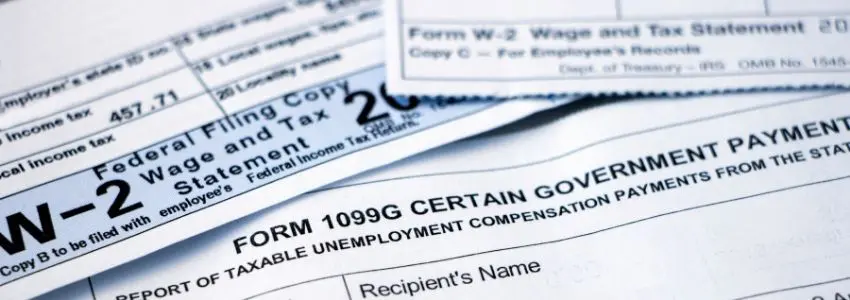Investigations With Intention
Last Updated on July 14, 2025 / Employee Relations, HR Compliance
HR Question:
I just received a complaint about an employee doing work for his other job on our company’s time, and it is going to require an investigation. What do I need to know before getting started?
HR Answer:
Conducting an employee investigation is a serious matter that must be handled well, utilizing a fair, consistent, and compliance-driven process to protect staff and keep companies out of legal trouble. Whether it is harassment, ethics violations, unprofessional behaviors, or even illegal activity, HR professionals must swiftly address and investigate complaints with skill and expertise. Here are some things to keep in mind as you prepare for the investigation and read about how a recent situation was specifically handled.
Who should conduct the investigation?
It is essential that you choose a qualified, neutral investigator. According to the Association of Workplace Investigators (AWI), the investigator should be professionally trained, impartial, objective, and skilled. Some organizations are able to fulfill these requirements in house, others use a neutral, external party to assure non-bias in the investigation.
In this case, the company’s HR Manager has been trained in conducting investigations. Since the employee allegedly doing other work on company time does not work under her chain of command, she will conduct the investigation. She will work with her manager, the Chief Operating Officer, to establish her interview questions and, if necessary, review the results of the interview to determine the appropriate action to take with the company’s employment attorney.
Investigate promptly
It is a priority to swiftly investigate employee allegations while being objective, thorough, and confidential. Proper preparation for the investigation is essential. Be sure to start preparing and conducting the investigation immediately after a complaint is made. A quick response shows concern for the employees involved and an intent to get to the bottom of the issue and find a resolution. This fast response also allows for improved recall for the complainant and the witnesses, as well as the accused. It is harder to say “you can’t remember” what happened to something that happened yesterday versus a week or a month ago.
Here, our HR Manager prepared her interview questions and scheduled interviews to begin within 48 hours of the allegations being made. The goal was to complete the interviews within three days.
Follow a consistent, documented process
Your organization should have a standard procedure for conducting investigations. Follow your process, which should include getting the complaint in writing, as well as verbally. This allows you to carefully assess and dissect the allegations to determine the potential policy violations to prepare for the investigation properly. If you conduct the investigation internally, make sure all individuals involved are treated similarly and use a consistent process to get to the truth.
In order to protect employees, you may need to consider placing those involved on a temporary leave of absence or reassigning of location or job of the employees, depending upon the nature of the investigation and those involved.
In this case, the HR Manager was following the process of conducting investigations as outlined in the employee handbook. She also had the person who reported the allegations, a co-worker of the individual, write down what they alleged happened. They reported seeing the employee come into work at 8:00 AM one day this week and two days last week and meet with a visitor who had nothing to do with their job. The meetings lasted 30-40 minutes and took place in the employee’s office.
Interview questions
Craft interview questions carefully and consistently for an investigation. Include questions that get to the facts, including the who, what, where, when, how, and why.
This is not the time to gather opinions about someone or something. Instead, focus on getting to the facts and the behaviors that resulted in a potential policy violation. For instance, if an employee says, “He treats me differently than everyone else,” dig deeper to understand the precise actions or words that illustrate this different treatment. A specific statement like “I heard him tell Jeff he could take the rest of the day off without reporting it, whereas I must report all my time off” clarifies the real issue behind the complaint.
One of the primary goals for the complainant’s interview is to establish tangible statements or actions to investigate. Interview questions can then inquire about those details. If the investigation is related to harassment, review this article on handling those specific types of investigations.
Our HR Manager had specific questions for the coworker, the employee, and the payroll coordinator, including who the employee was meeting with, the purpose of these meetings, whether anyone else had observed them, the exact dates they occurred, and the hours the employee had recorded on their timecard.
Conducting the interview
During investigations, tone is an essential piece of the interview. All conversations should begin by outlining the process and timeline. You should let participants know that the information obtained will be kept as confidential as possible but do not guarantee confidentiality. Proper interviews protect the privacy of individuals who are involved in the process, as much as possible. Information obtained during the interview process may need to be shared to verify or validate facts.
The actual interviews are critical to an investigation to obtain the facts and provide essential information for the proper outcome, but they can also go horribly wrong. Interviewers must be well-trained, calm, focused, and neutral or objective. Proper interview techniques can result in a positive experience for all involved. Interviewers who take a strong, very forward approach can be perceived as intimidating and potentially create an uncomfortable environment for those involved. Interviewees who are not comfortable and become defensive are less likely to share relevant information. It is recommended that interviewers balance their approach to firm but fair, avoiding potential claims of an unfair investigation.
Interview location
Finally, be sure to consider the timing and location of the interviews. Conduct interviews in a private location where no one else can listen in or observe from glass walls or windows. Interviewers may want to have a neutral third party present in the interview to observe, take notes, watch for nonverbal behaviors, or ensure the safety of all parties involved. Consider whether you wish to record the interviews and use transcription or AI to help accurately record the conversations. Be sure to consider recording laws in your state as you consider how to take notes.
In our situation, the interviews were conducted in a private conference room, where no one could listen. Two other employees were identified as having witnessed the visitors in the employee’s office. The interviews were recorded, as no one else was available to be an observer or take notes, and our HR Manager wanted to be fully focused on the conversation and ensure that nothing was forgotten during the interviews.
Document your findings and take action
Treat all documentation for investigations like you are going to court…even if it is ten years from now. Yes, court proceedings take a long time, and even if “this was an easy one,” it is better to document all investigations consistently from the moment they begin. Keep detailed notes on who, what, and when it was discussed. It is also helpful to organize and review your notes upon completion to make sure they are clear after many years.
Once the interviews are complete and all information is obtained, it is time to decide on the resulting actions and move on them. Determine whether policy violations occurred based on the evidence. Take disciplinary action if appropriate and according to organization policy. Communicate with all parties involved about the results and action taken. This responsiveness shows commitment to the decision and how seriously misconduct is taken. If training is part of the recommendation, schedule or conduct it quickly as well.
Our HR Manager learned through her investigation that this employee has a part-time job outside the company. He has brought customers from this external job into their office on at least five occasions, meeting with them for at least thirty minutes. In addition, the employee had reported on his timecard that he was working for our company and during these meetings. The HR Manager and her COO determined the employee had violated their “Outside Employment” policy and their “Reporting Work Hours” policy in their handbook. After reviewing the situation with their employment attorney, the employee was issued a written warning and put on a two-day unpaid suspension for these policy violations.
All of these items are important to ensure proper investigations are conducted, but note that investigations are only part of the picture. For success in dealing with difficult situations and building a culture of civility in the workplace, much more is needed.
- Build a culture that supports doing the “right thing.”
- Have a policy in place that allows you to act if necessary.
- Communicate that a comfortable and confidential reporting system is in place so employees can have open and honest discussions about what is happening in the workplace.
Human Resource professionals have the ability to make a difference in handling issues internally with proper processes and reporting mechanisms in place, along with knowledgeable and experienced investigators.
If your organization is looking for an independent third-party to provide unbiased workplace investigations, Clark Schaefer Strategic HR (CSSHR) is here for you. We have over 30 years of experience conducting employment investigations allowing you to focus on your daily work while we carefully conduct the investigations for you. Please visit our Outsourced HR Solutions Page for more information.














